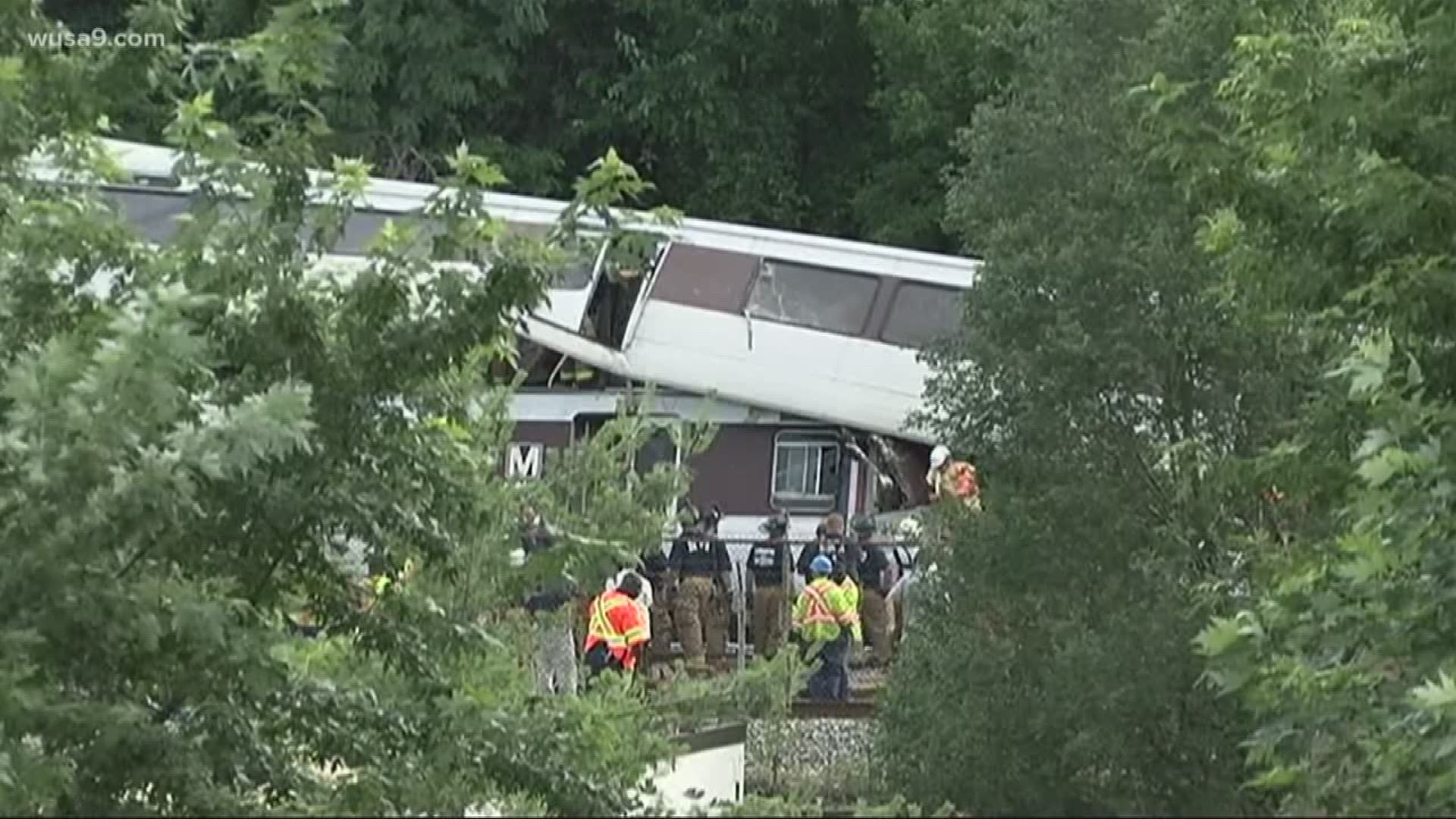WASHINGTON — Metro said it will review the actions of two train operators—as well the transit agency’s own rules and technology—after an empty train rear-ended a stopped train near Farragut West early Monday morning. The crash is the first major collision of two Metro trains since a 2009 crash near Fort Totten that killed nine.
Metro Chief Safety Officer Theresa Impastato presented initial findings of Metro’s crash investigation to WMATA’s Board of Directors on Thursday, saying that a "comprehensive evaluation of human factors" is still ongoing.
"That will require considerable effort to establish the factual record," Impastato said.
Metro said that just before 1 a.m. Monday, a train approached a stopped train from behind. Impastato said the approaching train’s Automatic Train Protection system alerted the operator to a possible collision with what’s known as a "zero speed command"—a visual alert on the operator’s control panel along with an audible chirp, according to a Metro spokesperson.
Impastato said if the train operator does nothing, automatic emergency braking forces the train to a stop. Metro said the operator can only move again with permission radioed from the Rail Operations Control Center.
After the crash, investigators tested the Automatic Train Protection system, and Impastato said the system and its speed display worked without issue. Metro said that investigators saw no issues with radio systems, and they were "performing as designed." Metro said reviews of transmissions are still in progress.
Metro board members asked if new technology could be used to prevent a repeat crash. Impasato said that is possible, but "there are various operational complexities that need to be taken into account."
"We focus on safety over service," Metro General Manager Paul Wiedefeld said, adding that the transit agency could have quickly ended delays on Monday, but Metro wanted to take this investigation slowly.
The process of a larger investigation is just beginning, so the transit agency can avoid another collision.
"You can see the way we reacted to this, and we put the riders first," Wiedefeld said. "We didn’t go out there and run service until we knew what we had on our hands."
Metro said all the findings presented Thursday are "preliminary" and could change. Damaged trains are now stored in two separate rail yards, according to Metro spokesman Dan Stessel.
Metro said it is planning more interviews with train operators. Metro’s Chief Safety Officer said the human part of the investigation could take another month.

